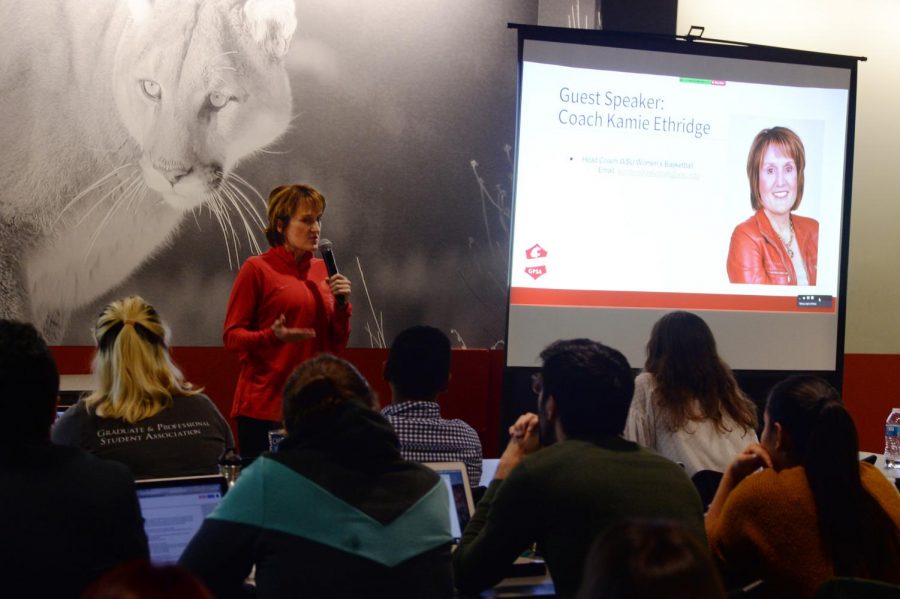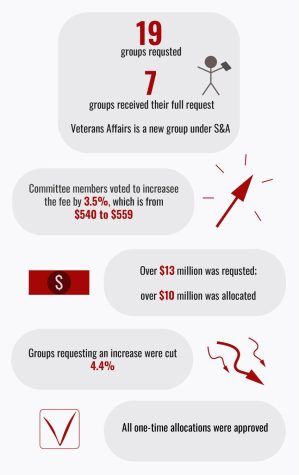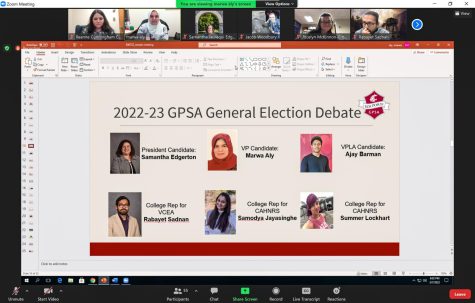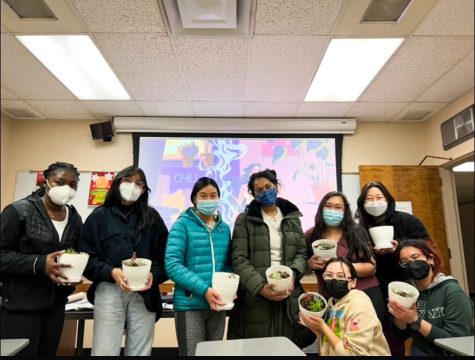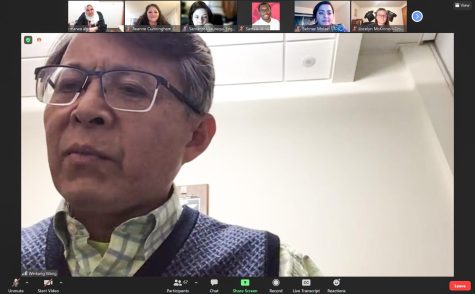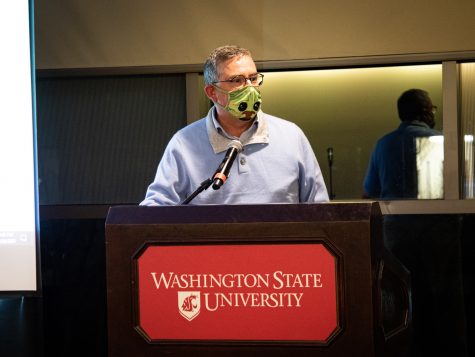GPSA talks voting, UREC hours, athlete mental health
Women’s basketball head coach advises vigilance, support
DAVID PEDRAZA | THE DAILY EVERGREEN
Kamie Ethridge, women’s basketball head coach, discusses the importance of mental health and its effects on her career as a basketball player Monday at the GPSA meeting.
October 9, 2018
At the GPSA meeting Monday night, members discussed mental health, University Recreation hours and voting at WSU.
Guest speaker Kamie Ethridge, head coach of women’s basketball, discussed efforts to improve mental health services for student athletes.
Mental health was not an issue that was talked about five or 10 years ago, she said.
“It just seems like it’s come on so fast as to the magnitude of mental wellness,” Ethridge said. “It has touched us all in some capacity. I can’t tell you the numbers of students that are really struggling with some sort of mental health [problem].”
One of the difficulties with mental health issues is that it can be hard to tell if someone is struggling with it, she said.
“Honestly, we’re not going to know a lot of times if a student-athlete has a problem,” Ethridge said. “It’s something we’re really sensitive to, but we have to have our eyes wide open.”
Josh Munroe, vice president of Legislative Affairs, said he was glad to hear there is more work being done to address student mental health concerns.
“It’s encouraging in that we feel like we can have more conversations with her in the future,” he said, “specifically about how we can best help both graduate students and student-athletes, people that we both represent, specifically on this issue.”
Munroe talked about the work done by a university mental health group, headed by Ellen Taylor, associate vice president of student engagement.
They are working to have a guest speaker each month to talk about mental health and anyone can go to the events, he said.
“If we get enough student and administrative support then we’ll build this in a regular part of the WSU calendar going forward,” Munroe said.
This month a documentary about resilience is being shown for the event. It will be at 3:30 p.m. Oct. 24 in Todd 276 and 5:30 p.m. in CUE 203.
“We want to make sure that the speeches being given have enough appeal that anybody can take a lesson about self-care [and] student mental health,” Munroe said.
Jeff Elbracht, director of UREC facilities, spoke about recreation fees graduate students have to pay.
GPSA members also asked about expanding UREC hours, which was brought up in the last meeting.
“Each additional hour [that the UREC is open] during the school year costs $25,000,” Elbracht said. “It’s all doable, but obviously there’s a cost associated with it.”
Munroe discussed his work with the Legislative Affairs Committee, which is focusing on getting people to vote.
It produced a one-page synopsis of each of the initiatives on the ballot and how they affect students at WSU.
Graduate students are automatically registered to vote as a way for the university to ensure they pay the correct tuition, Munroe said, so the Legislative Affairs Committee focuses on engagement, not registration.
In the last midterm elections in 2014, the turnout at WSU was roughly 19 percent. At the University of Washington, there was a 64 percent turnout rate, he said.
“Something that I would really encourage, especially our athletic-minded students or people that are really interested in the rivalry between WSU and UW,” Munroe said, “is that if you don’t want them to beat you on the voter turnout, the state of Washington makes it super simple to fill out the ballot and turn it in.”


